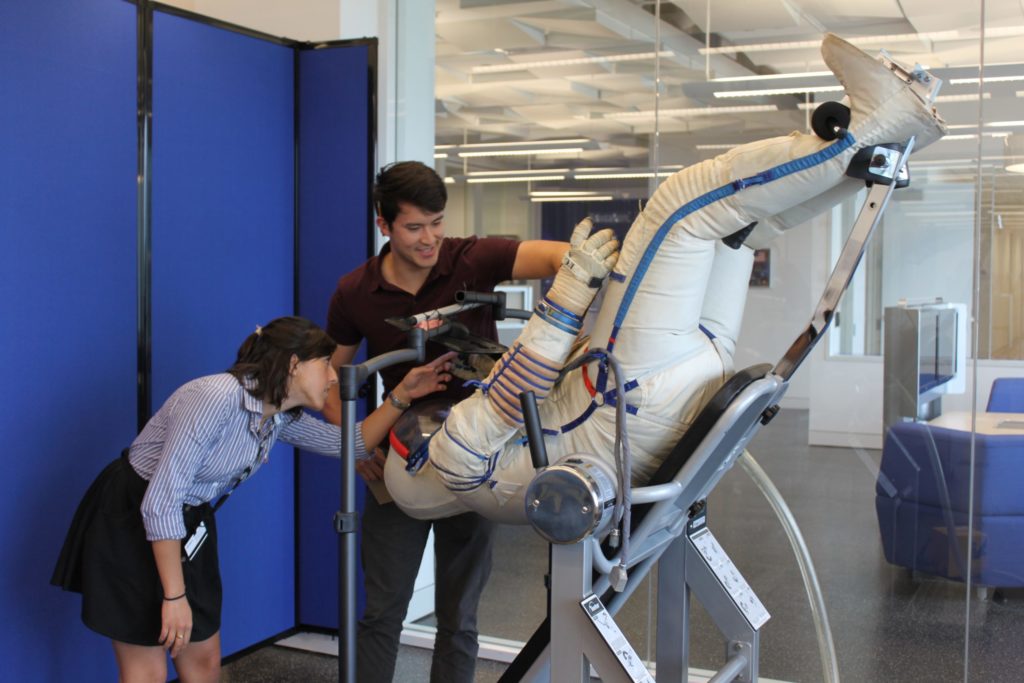![]() The Genotype-Tissue Expression (GTEx) project, funded by the NIH, is an interdisciplinary, international research effort that includes a team of statistical researchers from UNC-Chapel Hill and NC State. A central aim of the GTEx project is to identify parts of DNA that control the expression of genes in one or more tissues, and whether the genetic instructions they carry affect all tissues, or only a subset of tissues.
The Genotype-Tissue Expression (GTEx) project, funded by the NIH, is an interdisciplinary, international research effort that includes a team of statistical researchers from UNC-Chapel Hill and NC State. A central aim of the GTEx project is to identify parts of DNA that control the expression of genes in one or more tissues, and whether the genetic instructions they carry affect all tissues, or only a subset of tissues.
“Our DNA can be thought of as a cookbook that contains recipes for the distinct tissues, like skin, blood, lung, heart and brain, that we all share,” said Andrew Nobel, professor of statistics and operations research in UNC’s College of Arts and Sciences, and of biostatistics in the UNC Gillings School of Global Public Health. “Unlike an ordinary cookbook, the recipes in DNA have been broken up into microscopic instructions and spread throughout our genes. Some instructions are unique to specific tissues or tissue groups, while others are shared by most, or all, tissues. Understanding how different genetic instructions are carried out in different tissues is an important scientific problem, and an important first step in understanding mechanisms that link genetic variation and disease.”
“We have little understanding of how genetic variants actually cause disease, because we haven’t been able to look at the gene expression part of the equation,” added Nobel’s collaborator Fred Wright, professor of statistics and biological sciences at NC State and an adjunct professor of biostatistics at UNC. “GTEx aims to fill the knowledge gap between the DNA you’re born with and actual disease outcomes.”
In the initial phase of the GTEx project researchers obtained DNA, and expression measurements of numerous tissues, from 175 recently deceased individuals. Initial investigation established that nearly normal gene activity persists for several hours after death. In subsequent work, Nobel, Wright and their collaborators developed a number of the key computational and statistical methods used by the GTEx consortium to analyze the multi-tissue data. The essential problem was to connect variation in DNA to expression.
Initial results have been promising.
“We found that DNA variants affecting expression tend to do so either in very few tissues or in almost all tissues,” said Nobel. “As data from more tissues becomes available, we expect a more complex picture to emerge, in which we identify variants affecting the expression of blocks of biologically related tissues.”
“Researchers within GTEx are now comparing our results, and those of other analysis groups, to existing studies of variant-disease association, with the immediate goal of better identifying variants and genes associated with known ailments such as diabetes, heart disease and schizophrenia,” Nobel added. “A long term goal of the GTEx project is to facilitate personalized (targeted) therapies for these and other diseases.”
The results appear in the May 8 issue of Science. Funding was provided by the National Institutes of Mental Health and the NIH Common Fund. Read the NIH press release.



